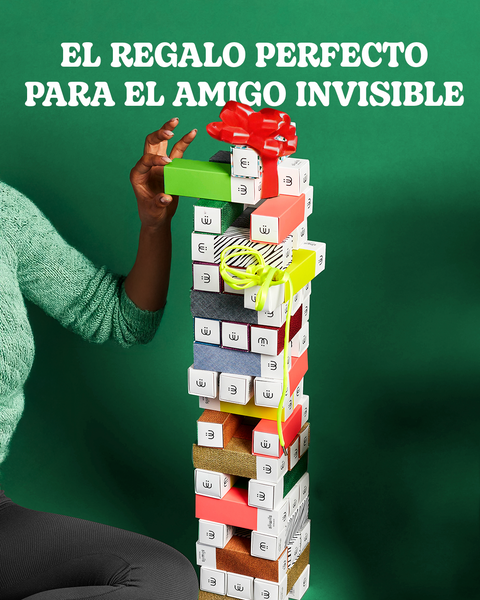
Discover the new Zebra Collection
Black and White to match anything
You've come here looking for the spelling zebra or zebra. But, first, let us tell you that...
Spelling rules are just that, rules. Rules whose existence depends on the transgression that confirms them. Think about it: if no one broke them, rules, norms and laws would lose their raison d'être.
In the case of spelling, like whether you spell zebra or zebra, the rules are set by the Language Academy. And it is difficult for them to change them, unless they are riddled with hashtags on Twitter.
I don't mean to detract from their knowledge, as I'm sure they recite Don Quixote by heart.
But those who decide whether it is zebra or zebra, among so many other questions, are still adamant that we must write according to the rule, when it should be the speakers, the ordinary people, who set the standard.
For example, yours truly is from the Seseante South, so he would write "sebra" and be ashamed of it. And who the hell says that's wrong? Ah, right, their rule...
Anyway, the point is that you wanted to know whether it is spelled zebra or zebra.
And the answer is that...
Spelled zebra or zebra, whichever you like less or more
You didn't expect it, did you? You can spell it zebra or zebra, whichever comes out of... your fingers. Check it out:
If you look up "zebra" in the omnipotent Diccionario de la Real Academia Española, book X, gospel XX, verse XXX, it says that "zebra" is less accepted than "zebra" because it is a minority form, but that does not mean that the use of "zebra" is outlawed. Although with this less acceptance of minorities...
So, if you write zebra and not zebra, don't worry: no language and literature teacher should be able to give you a 0.25 for spelling mistakes.
At least, that's what Doña Manuela used to say in my younger days, when I played 100-peseta Bollycao cards in the square and the idea of someone waving at you through a screen was a witch's tale.
What years...
Zebra rather than zebra: the rebelliousness of the minority
It is a sad reality, but minorities tend to disappear... if there are no idealists and rebels to defend them from the big fish.
If you clicked on the "zebra" link above, you will have seen the RAE page mention "f. desus.", i.e. "disused feminine form". But, without idealists and rebels, we are two updates away from seeing "Warning: The word 'zebra' is not in the Dictionary".
It's certainly nice of them to "warn" us when we stray from their rule, while surreptitiously urging us to return to the fold on pain of a minus 0.25 in a future Manu Language exam.
Excuse us, Your Excellencies, but the rules of the majority don't suit us: better to be free than free zebras, rather than zebras in restraints.

Zebra or zebra, the real question
It is no longer a question of whether you write zebra or zebra, or any spelling doubt which, in most cases, becomes irrelevant in oral terms (although the lack of a comma can cause depression: "No, I don't love you" is not the same as "I don't love you").
It's not even a question of spelling, but of a more transcendent question: why do they always have to tell us what?
What food to eat, what music to listen to, what books to read, what series to watch, what to wear, what, what and more what... In short, what we should and shouldn't do.
Fortunately, there are always idealists, that rebellious minority who jump over the fence and want to change things.
They are those "zebras" at whom several "zebras" look over their shoulders; and not with rejection, fear or aversion, but with surprise, amazement, one might even say fascination.
And they look at the zebras like that because the zebras are also tired of the "who's who " from above... but they are not brave enough to say "this far".
What is the difference between zebra and zebra?
On paper, none; in reality, they are diametrically opposed...
Zebras are the conformist, classic people, those who follow the rules to the letter for fear of what they will say or what they will do.
Zebras, on the other hand, are the original, transgressive people, the ones who kick the rules and create their own. They eat, listen, read, watch and wear the clothes they want.
That is the difference between zebra and zebra. And let the academics stick to their linguistic standards.
The symbol of the zebras
An ideal would not be such without a symbol, without an icon, something that brings together and unmistakably represents those principles, which, in the Zebras, are transgression, rebellion, "no thanks".
Your symbol should be something that you wear every day, that doesn't get in the way, that doesn't depend on circumstances. On any day, in any place, in any weather.
It could be... a small but eye-catching accessory. Unexpected, that shows right away that this person goes beyond the rules of what is aesthetically correct as a symbol that he or she also goes beyond the rules of others.
An accessory to wear on clothes, shoes or, why not, as a bracelet... or necklace.
Could it be... animal print zebra shoelaces?
I like the idea. Useful, versatile, for everyday use.
Plain? Coloured?
The plain ones are more boring...
Okay, what colour?
Mmm... what colour are zebras/zebras?
Black and white. Or black and white.
Opposites, duality...
The white of zebras and the black of zebras?
Who knows, or the other way around.
Do we call them Zebra or Zebra Shoelaces
?
What do you think?
Personally, I will write "sebra": I stopped worrying about spelling "mistakes" in a language and literature exam ages ago.




Comments (0)
There are no comments for this article. Be the first one to leave a message!